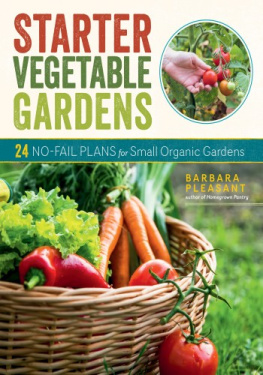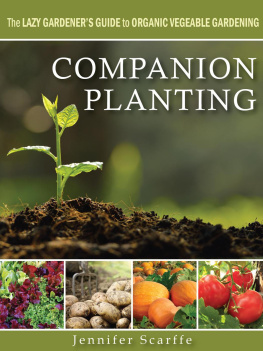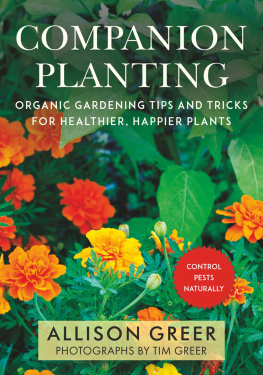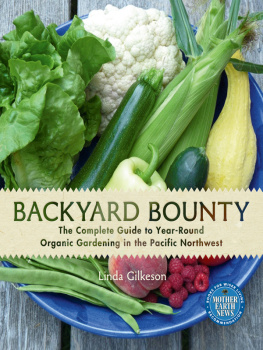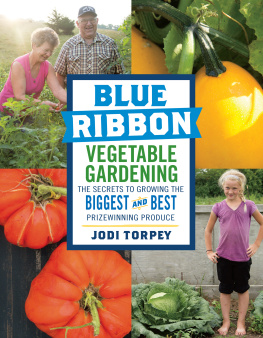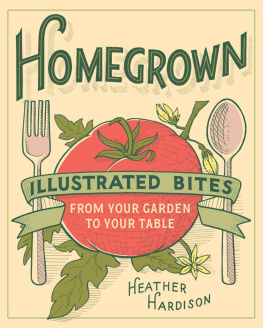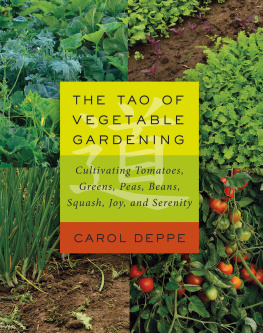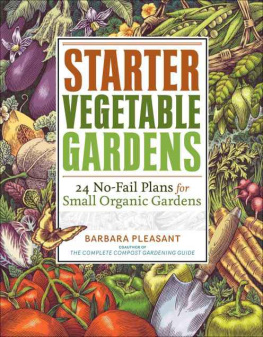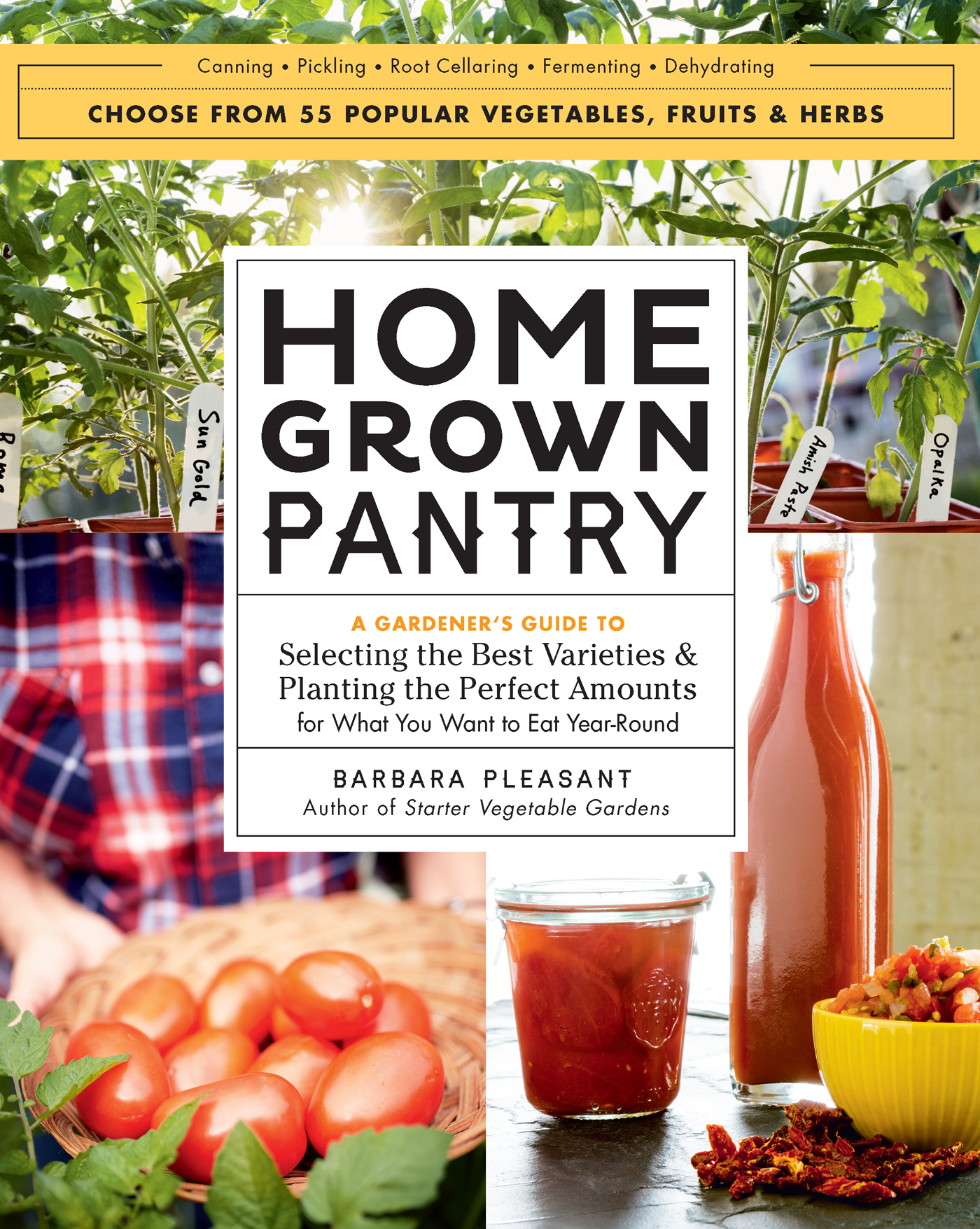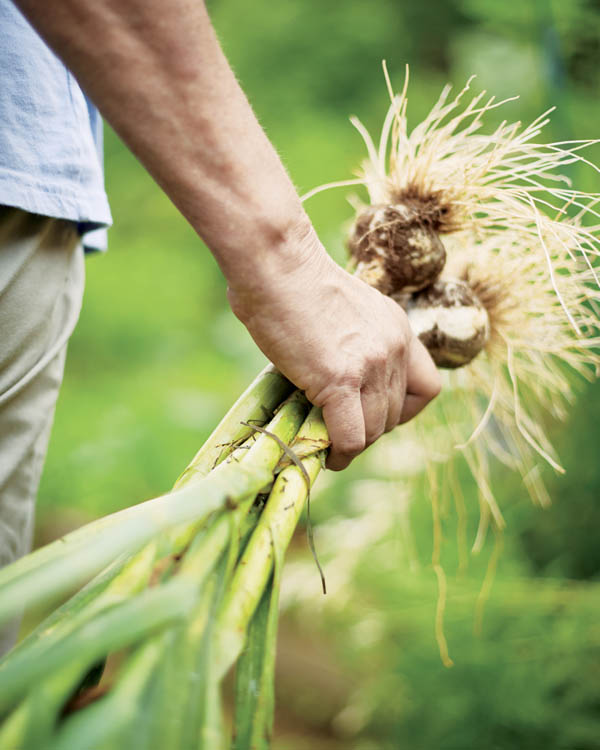Contents
No. 1
Why Grow YourOwn Food?
The best food in the world starts in the garden and ends on your plate, perhaps after a comfortable stop in a well-stocked pantry or freezer. It never knows the back of a truck or the inside of a factory, and it holds no chemical or genetic secrets. The food you grow and preserve yourself is pure. Eating it feels comfortable and good.
This is why we garden our way through summer and can our way through fall, with the hum of the dehydrator in the background. Both a hobby and a lifestyle, provisioning yourself with homegrown, organic food brings tasty, tangible rewards that save you money, but its the overall wholesomeness of the endeavor that makes food gardening so special. The package deal includes healthy exercise and mindfulness practice (weeding, cutting vegetables), for which you get a supply of fresh food that is renewed each year.
This book is about growing a garden that produces tasty, nutritious vegetables, herbs, and fruits, and then storing them for year-round use. This rewarding path leads to a fuller life, but its a long and winding road from growing your first tomato to canning a batch of salsa. This is your guidebook for that journey.
The Drive to Provide
My city mother fell in love with and married my country father, who grew a vegetable garden every summer because he liked it and thought thats the way life should be. With four kids to feed, Mom liked the money she saved with all the produce that came from the garden, but she didnt like the extra work involved in canning, at least most of the time. When the wild huckleberries in the woods ripened in early summer, she patiently picked the tiny berries and used them in muffins and pancakes, but she also made precious jars of huckleberry jam.
As her first assistant, I saw the time and care she took with that jam, and I knew it was not about saving money. She had devoted herself to those huckleberries by choice, and seeing that they were put to good use became a source of personal pride.
I should mention that my mother was Swedish, and that Nothing wasted was one of the mantras of my childhood, but this does not explain the compulsion to pick and preserve berries, which may be hardwired into our hunter-gatherer brains. As poetically stated by Wendell Berry, Better than any argument is to rise at dawn and pick dew-wet red berries in a cup. In terms of things you can do to have a better life, picking berries simply works.
Growing and preserving at least some of your own food will also make you feel more secure in a wild and ever-changing world. News of war, sickness, and economic collapse loses some of its punch when you are sitting in the shade with a basket of snap beans in your lap or lingering in the kitchen to hear the last canning lids pop.
Twelve Common Traits of Pantry Gardeners
In 2010, Melissa A. Click from the University of Missouri and Ronit Ridberg from Tufts University published their examination of why people grow and preserve their own food. Their results showed complex motives, but food activism was a recurrent theme. After sorting through and analyzing more than 900 interviews with people who stock their pantries with homegrown food, the authors named their paper Saving Food: Food Preservation as Alternative Food Activism. They wrote: Food preservation emphasizes connection and relationships and thus has the potential to subvert the capitalistic logic of the global agro-food industry.
This came as a revelation to me and helped me become a better information sharer and listener. I had started lecturing on managing your homegrown food supply, and I will always remember a group waiting to hear what I had to say at the Mother Earth News Fair in Lawrence, Kansas. The room was full with people who were already growing and preserving some of their own food, and they wanted to do more of it. Many had children or grandchildren in tow. The energy was great, so we spent a lot of time talking about why we do what we do. What is it about growing and preserving your own food that makes it worth the time and trouble?
I was the only one there who had read Click and Ridbergs paper, but the Kansas group (and many others since then) validated and expanded the reasons why we commit to growing and preserving garden food, season after season. We pantry gardeners are a diverse, freethinking crowd, but here are 12 things many of us have in common.
- You want to know whats in your food from seed to table. You perceive foods grown with systemic pesticides or genetic alterations as unacceptable, and you want to feel comfortable with what you eat.
- You want to control how your food tastes in terms of sugar and salt, and you dont want synthetic preservatives or colors. Plain food is good food.
- You want to feel confident rather than suspicious about the food you eat and serve to your children. Several major medical schools have advised pregnant women and young children to eat organic food because of high levels of carcinogens and other toxins present in mainstream foods. This is not news to you.
- You want your food to be consistent with your personal morals and beliefs. If you are a vegetarian, for example, growing and processing your own foods gives you a chance to eliminate animal-based ingredients.
- You feel that growing and preserving your own food makes you a member in good standing of the global social movement toward clean, ethically grown food. Talking food sustainability is good, but acting on those beliefs makes you feel that you are part of something bigger.
- You think of spending your money as a political act, especially when it comes to food. The belief in voting with your dollars is strong among gardeners who grow their own food, from the seed companies they patronize to the equipment and ingredients they buy for preserving food.
- You feel empowered by knowing how to grow and preserve food to eat year-round. The transition from I think maybe I can grow potatoes to gaining the skills needed to grow, harvest, cure, and store a bumper crop brings a certain boldness of being.
- You are willing to work hard for the reward of food security, and upon balance you think its a good deal. Some days are easier than others, with persistence your only choice, but when the harvest is done you feel it was all worth it.
- You regard growing and preserving your own food as an investment in your personal health, and that of your community and environment. By growing clean, nutritious food, using organic methods, you feel like you are doing your part.
- You find that managing your own food supply connects you more deeply to nature and the earth. From the changing of the seasons to the hardness or softness of rain, you sense the world as a human and as a plant.
- You feel a sense of family and social history when you grow and store your own food. Maybe its making your grandmothers pickles, or your uncles apple butter, but certain family recipes for preserved foods embrace us on deep levels, as sensory definitions of family.

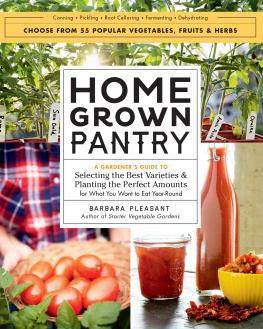

![Dowding - The Year-Round Vegetable Gardener’s Bible [7 Books in 1]](/uploads/posts/book/453239/thumbs/dowding-the-year-round-vegetable-gardener-s.jpg)
